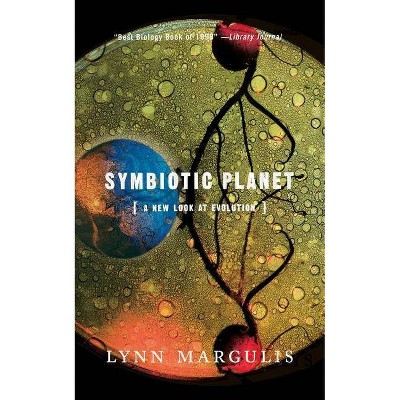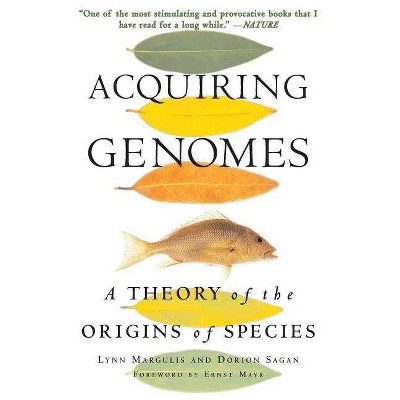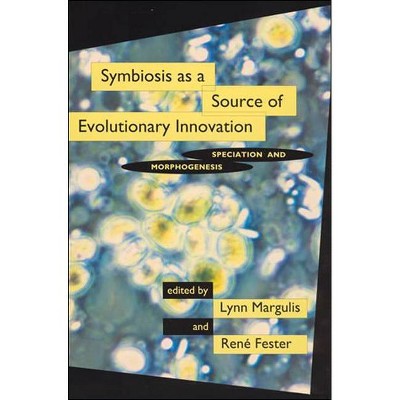Symbiotic Planet - by Lynn Margulis (Paperback)

Similar Products
Products of same category from the store
AllProduct info
<p/><br></br><p><b> About the Book </b></p></br></br>Named best biology book of the year by Library Journal, "Symbiotic Planet" describes how symbiosis is the key to understanding the origins of cells, the evolution of sex, the emergence of life on land, and even the physiology of our planet."<p/><br></br><p><b> Book Synopsis </b></p></br></br>Although Charles Darwin's theory of evolution laid the foundations of modern biology, it did not tell the whole story. Most remarkably, <i>The Origin of Species</i> said very little about, of all things, the origins of species. Darwin and his modern successors have shown very convincingly how inherited variations are naturally selected, but they leave unanswered how variant organisms come to be in the first place. In <i>Symbiotic Planet, </i> renowned scientist Lynn Margulis shows that symbiosis, which simply means members of different species living in physical contact with each other, is crucial to the origins of evolutionary novelty. Ranging from bacteria, the smallest kinds of life, to the largest -- the living Earth itself -- Margulis explains the symbiotic origins of many of evolution's most important innovations. The very cells we're made of started as symbiotic unions of different kinds of bacteria. Sex -- and its inevitable corollary, death -- arose when failed attempts at cannibalism resulted in seasonally repeated mergers of some of our tiniest ancestors. Dry land became forested only after symbioses of algae and fungi evolved into plants. Since all living things are bathed by the same waters and atmosphere, all the inhabitants of Earth belong to a symbiotic union. Gaia, the finely tuned largest ecosystem of the Earth's surface, is just symbiosis as seen from space. Along the way, Margulis describes her initiation into the world of science and the early steps in the present revolution in evolutionary biology; the importance of species classification for how we think about the living world; and the way academic apartheid can block scientific advancement. Written with enthusiasm and authority, this is a book that could change the way you view our living Earth<p/><br></br><p><b> About the Author </b></p></br></br><b>Lynn Margulis</b>, Distinguished Professor in the Department of Geosciences at the University of Massachusetts at Amherst, has been a member of the National Academy of Sciences since 1983. She is best known for her pathbreaking work on the bacterial origins of cell organelles and for her collaboration with James Lovelock on Gaia theory. <p/> Her previous books include <i>Symbiosis in Cell Evolution; Five Kingdoms</i> (with K. V. Schwartz); and (with Dorion Sagan) <i>Origins of Sex, Garden of Microbial Delights, What Is Life?, What Is Sex?</i>, and <i>Slanted Truths: Essays on Gaia, Symbiosis and Evolution</i>.
Price History
Cheapest price in the interval: 13.99 on November 8, 2021
Most expensive price in the interval: 13.99 on December 20, 2021
Price Archive shows prices from various stores, lets you see history and find the cheapest. There is no actual sale on the website. For all support, inquiry and suggestion messages communication@pricearchive.us




















